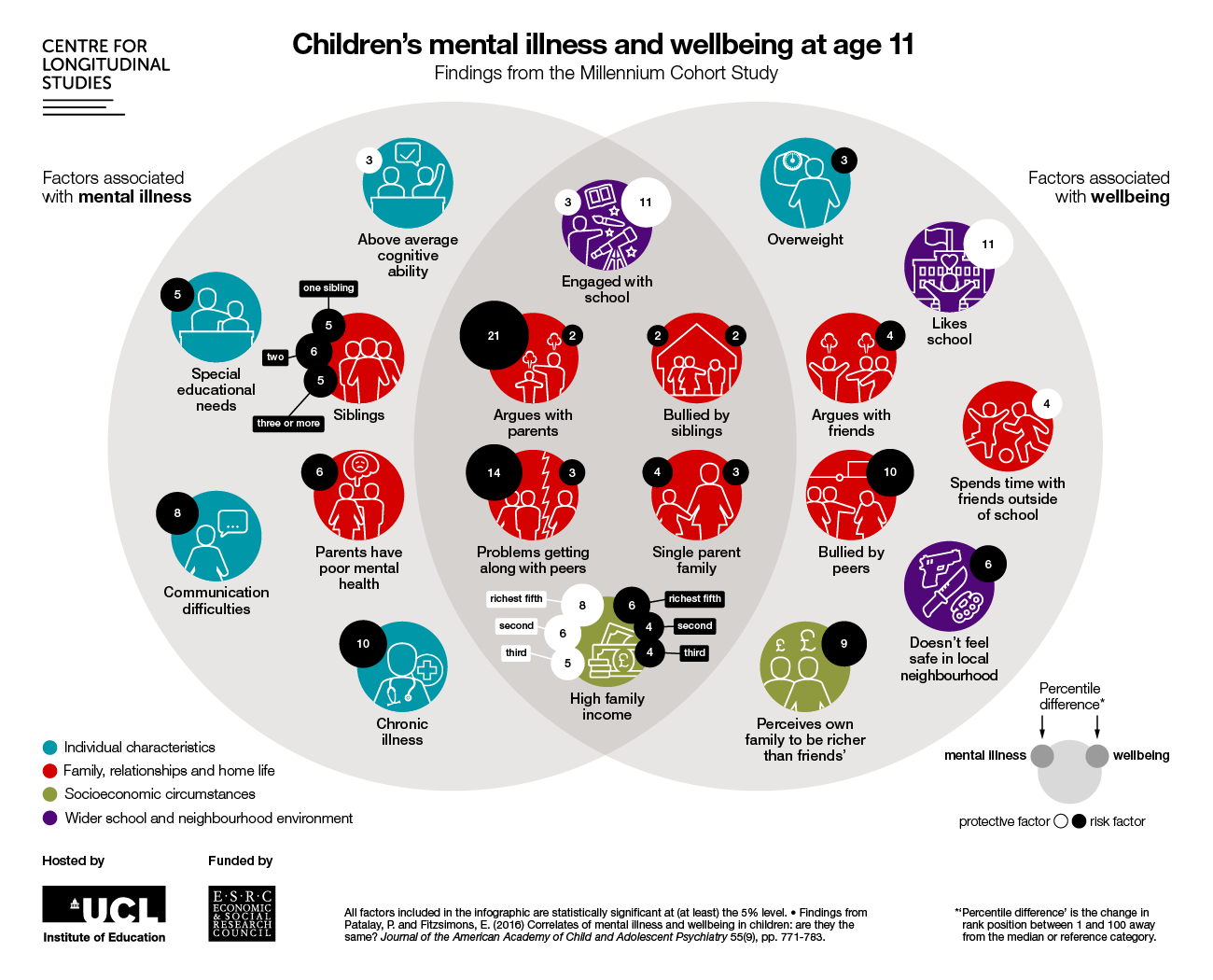Protecting Our Future: The Urgent Need To Invest In Children's Mental Wellbeing

Table of Contents
The Growing Crisis in Children's Mental Health
The alarming rise in mental health challenges among children and adolescents demands immediate attention. We are witnessing a significant increase in the rates of mental health disorders, impacting children's ability to thrive and reach their full potential.
Rising Rates of Anxiety and Depression
Anxiety and depression are among the most prevalent mental health disorders affecting children. Contributing factors are multifaceted and often intertwined, including: increased academic pressure, the pervasive influence of social media, family conflicts, and societal stressors.
- Symptoms of Anxiety in Children: Excessive worry, difficulty sleeping, irritability, physical complaints (stomach aches, headaches), avoidance of school or social situations.
- Symptoms of Depression in Children: Persistent sadness, loss of interest in activities, changes in appetite or sleep, feelings of hopelessness or worthlessness, withdrawal from friends and family.
- Prevalence Statistics: Studies show a concerning upward trend in anxiety and depression diagnoses across various age groups, with significant increases observed in recent years, particularly among adolescents. The long-term consequences of untreated mental health issues can include academic difficulties, relationship problems, substance abuse, and increased risk of suicide.
The Impact of Trauma and Adverse Childhood Experiences (ACEs)
Trauma and Adverse Childhood Experiences (ACEs) significantly impact children's mental wellbeing and have long-term consequences. ACEs encompass a range of potentially traumatic events experienced during childhood, including abuse (physical, emotional, sexual), neglect (physical, emotional), and household dysfunction (domestic violence, substance abuse, mental illness, parental separation).
- Examples of ACEs: Experiencing violence, witnessing domestic abuse, growing up in a household with substance abuse, experiencing parental separation or divorce, emotional or physical neglect.
- Long-Term Impact: ACEs are strongly linked to a higher risk of developing mental health disorders such as depression, anxiety, PTSD, and substance abuse later in life. They can also lead to physical health problems and difficulties in forming healthy relationships.
- Resources for Traumatized Children: Numerous resources are available to help children who have experienced trauma, including trauma-informed therapy, support groups, and crisis hotlines.
The Importance of Early Intervention and Prevention
Early identification and intervention are critical in mitigating the long-term effects of mental health challenges on children. Recognizing the signs and ensuring timely access to appropriate care are paramount for promoting children's mental wellbeing.
Recognizing the Signs and Symptoms
Parents, educators, and caregivers play a vital role in identifying potential mental health issues in children. Early detection allows for timely intervention and prevents the escalation of problems.
- Behavioral Changes: Increased irritability, aggression, self-harm behaviors, changes in sleeping patterns, difficulty concentrating, acting out, withdrawal from social activities.
- Emotional Changes: Persistent sadness, hopelessness, anxiety, fear, excessive worry, sudden mood swings, loss of interest in things they used to enjoy.
- Academic Performance Changes: Significant drop in grades, difficulty focusing in class, increased absences from school, avoidance of school.
Access to Mental Health Services for Children
Access to affordable and high-quality mental health services for children and adolescents remains a significant challenge. Increased investment in child-specific mental health programs is crucial.
- Types of Services: Therapy (individual, group, family), counseling, medication management (when appropriate), psychiatric evaluations.
- Challenges to Access: High costs, limited availability of child and adolescent psychiatrists and therapists, geographical barriers, stigma associated with mental illness.
- Advocacy Efforts: Advocacy groups and organizations are working tirelessly to improve access to mental healthcare for children and address the systemic barriers that hinder access.
Strategies for Promoting Children's Mental Wellbeing
Creating supportive environments, fostering strong family relationships, and implementing community-based initiatives are crucial for promoting children's mental wellbeing.
The Role of Schools and Educators
Schools play a pivotal role in fostering children's mental wellbeing. Creating a supportive and inclusive learning environment is essential.
- Mental Health Awareness Programs: Implementing comprehensive mental health education programs in schools to raise awareness about mental health issues and reduce stigma.
- Teacher Training: Providing teachers with training to recognize and respond effectively to students who may be struggling with mental health challenges.
- Peer Support Programs: Establishing peer support programs to help students connect with one another and provide mutual support.
The Importance of Family Support and Parental Involvement
Parents and family members are fundamental in fostering a child's mental health. Open communication and creating a nurturing environment are crucial.
- Open Communication and Active Listening: Creating a safe space for children to express their feelings and concerns without judgment.
- Modeling Healthy Coping Mechanisms: Parents demonstrating healthy ways of managing stress and emotions.
- Seeking Professional Help: Recognizing when professional help is needed and actively seeking support for their child.
Community-Based Initiatives
Community-based organizations play a vital role in providing mental health support and resources.
- Examples of Programs: Youth mental health organizations, support groups for families, community-based mental health clinics, after-school programs promoting social-emotional learning.
- Importance of Partnerships: Collaboration between schools, healthcare providers, community organizations, and families is vital for creating comprehensive support systems for children.
Conclusion
The growing crisis in children's mental wellbeing demands immediate and concerted action. Investing in early intervention, expanding access to mental health services, and creating supportive environments are crucial steps in protecting our future. Let's prioritize children's mental wellbeing by advocating for better mental health policies, supporting initiatives that improve access to care, and promoting mental health awareness in our communities. We must work together to ensure that every child has the opportunity to thrive and reach their full potential. To find resources and support for children's mental health, visit [insert links to relevant organizations and resources here].

Featured Posts
-
 Conflict Kampen En Enexis Kort Geding Over Stroomnetaansluiting
May 02, 2025
Conflict Kampen En Enexis Kort Geding Over Stroomnetaansluiting
May 02, 2025 -
 Condemnation Of Russian Aggression Swiss Presidents Appeal For Peace In Ukraine
May 02, 2025
Condemnation Of Russian Aggression Swiss Presidents Appeal For Peace In Ukraine
May 02, 2025 -
 Nvidias Ceo Seeks Easing Of Ai Chip Export Regulations During Trump Era
May 02, 2025
Nvidias Ceo Seeks Easing Of Ai Chip Export Regulations During Trump Era
May 02, 2025 -
 Bharty Ryasty Dhshtgrdy Kshmyr Myn Eyd Pr Mzalm Ky Dastan
May 02, 2025
Bharty Ryasty Dhshtgrdy Kshmyr Myn Eyd Pr Mzalm Ky Dastan
May 02, 2025 -
 Tonga Dashes Sis Olympic Hopes
May 02, 2025
Tonga Dashes Sis Olympic Hopes
May 02, 2025
Latest Posts
-
 How Nigel Farage Is Shaping Reform Uks Influence
May 03, 2025
How Nigel Farage Is Shaping Reform Uks Influence
May 03, 2025 -
 Complot A Rome L Ombre D Emmanuel Macron Sur Le Conclave
May 03, 2025
Complot A Rome L Ombre D Emmanuel Macron Sur Le Conclave
May 03, 2025 -
 A Place In The Sun Top Locations And Investment Opportunities
May 03, 2025
A Place In The Sun Top Locations And Investment Opportunities
May 03, 2025 -
 Affaire Rome Le Role Presume D Emmanuel Macron Dans Le Choix Du Pape
May 03, 2025
Affaire Rome Le Role Presume D Emmanuel Macron Dans Le Choix Du Pape
May 03, 2025 -
 Finding Your Dream A Place In The Sun A Practical Guide
May 03, 2025
Finding Your Dream A Place In The Sun A Practical Guide
May 03, 2025
